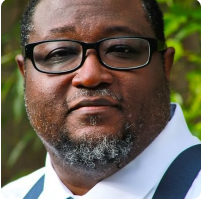
You’ve selected a great conference in your field, had your abstract and paper accepted, and are now wondering on what’s coming up next. Writing a paper takes a serious amount of time, but don’t underestimate the other parts of your preparation for the conference. If you’re interested in the amount of time every single step takes me as a PhD student in civil engineering, you’re most welcome to check out this post:
Here’s a list of steps you typically need to take before heading out to the conference.
1. Your presentation
I read that a minute of public speaking takes an hour of preparation. In fact, after giving a few similar presentations on my research topic, I still need enough time to compose a good presentation. Keep the following guidelines in your mind:
- Know your audience
Are you presenting to researchers or people from the industry? Are you presenting to people from your niche only, or is the audience broader? Determine this before you start making your presentation.
- Know all the requirements
Before you start making your slides, take a few moments to check the guidelines of the organizers. Check which material is available at the conference for your presentation. Check the requirements with regard to time.
- Slides
There’s plenty of information online on how to make clear slides. Don’t write entire sentences on your slides, make sure the font is large enough and make sure present your slides in a visually attractive way.
- Practice
Practice makes perfect. Make sure you allow yourself plenty of time to practice. If possible, practice your presentation before the conference with some colleagues or your advisor. Keep track of the time you need for your presentation, and if necessary, increase or reduce the amount of slides you have.
2. Networking
Your presentation is not your only chance to talk about your research during the conference. Make sure you can describe the topic of your research in less than five sentences and have your business cards ready.
Identify a few speakers or persons from the organizing or scientific committee with whom you’d like to talk. You can look at the abstracts or titles of the presentations to determine with whom you’d like to share thoughts. Alternatively, you can check the names of the organizing or scientific committee. If none of these names are familiar to you, you can try to find some papers by these scientists, so you have a starting point for your conversation.
However, avoid talking exclusively to people you planned to talk to. Let yourself be guided by surprise, you might end up having the most interesting conversation with the person who was standing in front of you in the line to the lunch buffet. Break out of your comfort zone, and avoid the safe option of only talking to fellow PhD students and young researchers. If you are traveling with colleagues, make sure you take the time to meet people.
3. Prepare for the sessions
Don’t wait until the conference has started to determine which session you would like to attend. Print out the schedule, and identify which talk you definitely want to attend. Highlight these, and then plan your conference. With planning your conference I mean the following:
- Look for a topic with which you are completely unfamiliar, and attend a session on it to broaden your perspective.
- Check when you will be taking the time to visit the exhibitors.
- When will you be checking out the posters, and will the same posters be available for the entire conference or will they change daily?
Make sure your planning is possible – you don’t want to be running from one building to another and get completely exhausted by lunch. Allow yourself and your brain time to process everything.
4. Prepare for traveling
To avoid getting stressed out right before catching your plane, make sure you have everything ready. This includes: train tickets, flight tickets, hotel reservation, confirmation of your registration at the conference. Definitely check on that last one – it happened to me this year that I arrived at a conference, finding out that I was not registered and had to spend the first morning of the conference filling out forms, rushing back and forth and trying to get in touch with the administration services of my university at 9 hours time zone difference away.
Don’t forget to check visa requirements if you’re traveling abroad, and check the expiration date of all your important documents. All this should make sure that traveling itself does not take up too much of your energy to avoid that you arrive at the conference exhausted from traveling.
How do you prepare for a conference? I’d love to read your stories in the comments section below.
Eva Lantsoght is a structural engineer currently pursuing a PhD at Delft University of Technology on the topic of shear in one-way reinforced concrete slabs. Originally from Lier, Belgium, she received an Engineering Degree from the Vrije Universiteit Brussel and a MS from Georgia Tech. At her blog PhD Talk, she blogs about her research, the process of doing a PhD, the non-scientific skills you need during your PhD, living abroad and her travels.













